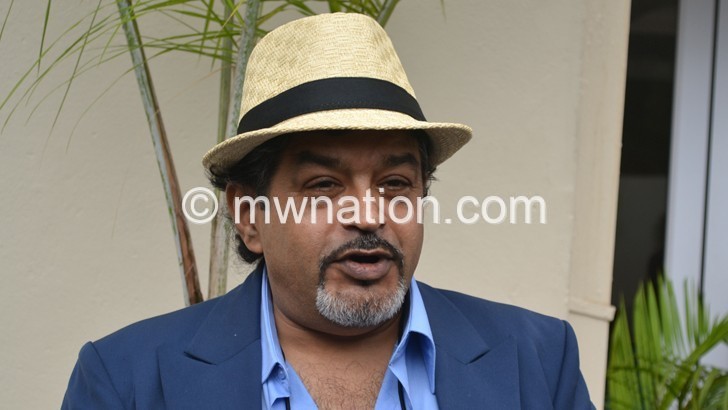Malawians mourn activist Hajat
People from all walks of life have mourned local civil rights activist Rafiq Hajat, who died on Monday of a heart attack, largely describing him as a patriot and relentless fighter for democracy and social justice.
In an interview on Monday, Nandini Patel, Hajat’s co-director at the Institute for Policy Interaction (IPI), said he suffered a heart attack at the weekend and was evacuated to South Africa for further medical treatment.

She said his death marked the end of the freedom fighter’s career spanning over three decades.
Said Patel: “He was a patriot and relentless fighter for democracy and social justice and took numerous causes over the decades and fought as far as he could.”
She said Hajat has left a huge void in the civil society space.
Patel said one of Hajat’s recent efforts was building bridges between the Malawian Asian community and the wider Malawian community.
Born in Blantyre in 1955, Hajat got a degree in political science at Saint Xavier College in India in 1975. He first came to the limelight as a human rights and pro-democracy activist at the dawn of democracy and during Bakili Muluzi and Bingu wa Mutharika’s reign.
He went on to serve as an executive member in the then governing United Democratic Front (UDF), vice-president of the Malawi Confederation of Chambers of Commerce and Industry, board chairperson of the now-defunct Development of Malawian Enterprises Trust (Demat) before founding IPI.
In interviews on Monday following his death, many remembered Hajat as the fearless man behind IPI, which was one of the key organisers of the July 20 2011 anti-government protests.
During the organisation of the protests, Hajat was forced to go into hiding for a few days after receiving death threats from then governing. Eventually, IPI offices in Blantyre were torched as Hajat was travelling to Lilongwe.
In his eulogy, Vice-President Saulos Chilima, who is also the UTM Party president, on Monday said Hajat made a great contribution to the dignity of humanity.
On his part, Institute for Policy Research and Social Empowerment director Henry Chingaipe described Hajat’s death as painful to take.
In a tribute posted on Facebook, he said: “When his health began to ebb, he slowed, but began to talk about the day he would depart from the face of the earth.
“I usually curtailed this conversation he would remind me that it was the ultimate end point and that day is today and it hurts.
“He was a different kind of a Malawian of Indian origin and a liberal gentleman, jovial and very witty. He was a team player, highly sociable and interested in the big questions and social problems of our society as a whole.”
Univesity of Malawi Department of Political and Administrative Studies associate professor Blessings Chinsinga described Hajat as an exceptional giant who had the knack of raising touchy issues that only a few would dare to.
He said: “He was a bridge between and among different races on the human rights front. The gap his passing has created will be impossible to fill in the foreseeable future.”
In an interview on Monday, Human Rights Defenders Coalition chairperson Gift Trapence said Hajat was an icon of democracy and a fearless civil rights leader “that stood the taste of time in standing for justice for the poor”.
In a statement on Monday, United Democratic Front (UDF) president Atupele Muluzi extended condolences to the Hajat family and described him as “a selfless person who fought for the rights of the ordinary citizen”.
Hajat was buried on Monday at West Park Cemetery in South Africa.





